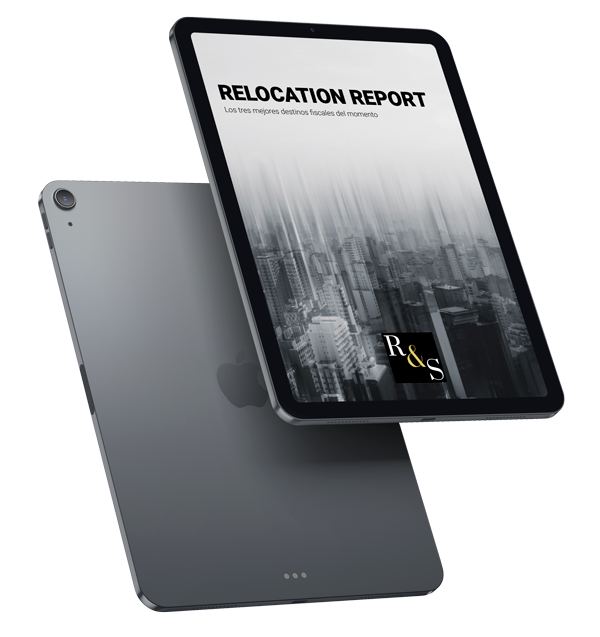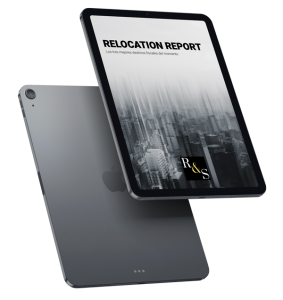Are you a US citizen thinking of moving to Spain? Spain is attracting more and more Americans who dream of living in a sunny, safe, culturally rich and affordable place. Whether you want to retire, work, study, or invest in Spain, you will need to know all the steps to follow and requirements to meet to settle yourself in Spain.
In this article, we will guide you through everything you need to know before moving to Spain from the US. You will also discover how you can benefit from the Spanish Digital Nomad Visa and Golden Visa programs to easily obtain residency in Spain, and you will be surprised to know that you can even lower your tax bill compared to the United States.
Let’s learn how to make your Spanish dream come true!
When do I need a Spanish visa?
US citizens who plan to move to Spain for less than 90 days out of every 180 days for family, medical treatment, tourism or business visits are not generally require applying for a specific visa. However, starting mid-2025, an exception enters into effects obliging those foreigners obtaining a visa waiver through the European Travel Information and Authorization System.
On the other hand, US citizens moving to Spain for a long-term stay (more than 90 days) for the purpose of work, study or establishing their residence need a long-term visa (D Visa) to enter Spain.
What types of long-term visa does Spain offer?
The Spanish law offers several types of visa depending on the purpose of the visit to Spain. The most popular long-term visas are:
Retirement or Non-Lucrative residence visa
The Non Lucrative Residence Visa allows its holder to reside in Spain without carrying out any gainful or profitable activity. In fact, this type of visa does not constitute a work permit, and its holder must prove he has sufficient and guaranteed means to live in Spain.
In addition, this visa is also open to some family members, like the spouse or unmarried partner; and dependent children and relatives in the ascending line who form part of the same family unit.
Employee visa
People aged at least 16 and who wish to work as employees in Spain under a valid labor agreement may apply for this visa. This type of visa covers any type of work, including seasonal work activities.
Self-employed visa
People aged, at least, 16 and who seek to get engaged in self-employed activities in Spain may opt for this type of visa. The process to get this visa may be more complicated than the employee visa since it firstly requires getting a residence and self-employed work permit.
Investor or Golden visa
Foreigners making significant capital investments in Spain may opt for the Spanish Golden Visa. Significant capital investments means one of the following:
- Initial investment of, at least, €2 million in Spanish public debt securities; or €1 million in securities in operating Spanish companies; Spanish investments or venture capital funds; or in bank deposits in Spanish financial institutions.
- Acquisition of a Spanish real estate asset for a minimum of €500,000.
- The execution of a business project in Spain considered to be of a general interest. General interest is measured based on the creation of jobs, socio-economic impact or its significant contribution to scientific or technological innovation.
Additionaly, this visa also applies to family members of the investor, including: the spouse or unmarried partner, children who are financially dependent on the investor including adult children who continue being financially dependent and have not established a family unit of their own; and relatives in the ascending of the investor who form part of the same family unit.
Digital nomad visa
Any foreigner planning to live in Spain as a resident and working remotely from Spain, either as an employee or self-employed, may opt for the Spanish Digital Nomad Visa. Relocate&Save has already addressed the key aspects of digital nomads in Spain in a specific post, but its main traits are:
- The digital nomad should work for a foreign company, or provide freelance services to mainly foreign customers (Spanish customers can’t represent more than 20% of his income)
- The digital nomad should be graduated from a well-known university or have an extensive professional experience
- This visa has an initial duration of 3 years, which can then be easily renewed and converted into permanent residence.
This type of visa is also available to family members of the digital nomad, like the spouse or unmarried partner, dependent children and dependent relatives in the ascending line who form part of the family unit.
Visa application process
Opting and applying for one type of visa depends on the specific situation of the foreigner moving to Spain. It is important to apply for the correct visa before travelling to Spain and ensure all the material and formal requirements are complied with.
Do not hesitate to contact us if you want us to assist you in the process, we have extensive experience in this regard.
Common formalities
All the visa types have the following common formalities:
- Completion and signature of the visa application form by the applicant.
- A recent, passport-size and color photograph.
- The original and a photocopy of the page or pages of the passport containing biometric.
- Documents supporting the fact of having sufficient financial means to cover living expenses in Spain.
- Original and a copy of the certificate accrediting the public or private health insurance contracted with an insurance entity authorized to operate in Spain.
- The original and a copy of the criminal record certificate issued by the competent authority in the State of residence and departure.
- The Original and a copy of a medical certificate accrediting that the applicant does not suffer any disease that could cause serious repercussions for public health.
- Proof of residence in the State of departure.
- Settlement and payments of the visa fees.
Specific formalities
There are specific supporting documentation and formalities to be complied with which depends on the type of visa. These are:
- Non-working residence visa application form in case of retirement or non-lucrative visa.
- Original and copy of the initial residence and employee work permit and a copy of the labor agreement, which apply in case of employee visa.
- List of permits or licenses required for the establishment and carrying on of the professional activity; original and a copy of the documents supporting the required training and qualifications; and business plan describing the investment, expected return, hiring, etc. All these documents are required in case of a self-employed visa.
- Documents supporting the qualifying investments, which applies in case of investor or golden visa.
- Documents supporting the compliance with the specific requirements to opt for the digital nomad visa as described in our previous post which is available here.
Residence permit
Upon arrival in Spain, any foreigner planning to stay longer than 90 days must apply for a residence permit. He will need to apply for a Foreigner Identity Card, known as NIE. The application should be done either in any Foreigner’s Office or at any national police station in the Spanish province of residence by prior appointment.
At the time of applying for the residence permit, the following documents must be provided:
- A completed and signed application form.
- Original and copy of a valid passport.
- Proof of payment of the applicable fee (c. €12).
- A recent color photograph.
- A current administrative residence certificate issued by the local town hall.
What about taxes as Spanish resident?
Generally, you would become Spanish tax resident if you stay more than 183 days in a year in the country. If that is your case, you would have to pay Spanish taxes on your worldwide income. The Personal Income Tax could be burdensome since it is levied on a progressive basis, being the highest rate 47%.
However, expatriates moving to Spain may qualify for a special Personal Income Tax regime, commonly known as Beckham Law. Under this regime, despite the fact of qualifying as Spanish tax resident, expatriates would pay taxes in Spain at a flat rate of 24% on their worldwide labor or professional income up to €600.000. The excess would be taxed at 47%. Other Spanish sourced income would be taxed at a progressive rate from 19% to 28%.
This special regime also offers a quite attractive taxation for non-Spanish income different to labor or professional income like passive income (i.e., dividends, interest, etc.). Those non-Spanish and non-labor income would not subject to tax in Spain.
This means that if you have income from foreign work activities and foreign dividends, the combination of a Digital Nomad Visa or a Golden Visa, together with a Beckham Law, could allow you to reside in Spain paying a very low effective rate.
Let’s think of an engineer in San Francisco who makes $300,000 per year and also receives $100,000 annually in dividends for his stock portfolio. If he decides to move to Spain, under the general regime he would pay around 42% for his salary (~$130,000) and around 19% for his dividends (~$20,000), an approximate of $150,000, that is, an effective rate close to 40%.
However under the Beckham Law he would only pay 24% for his salary ($72,000) and nothing for his dividends, which means an effective rate of 18% on all his income, half that under the general regime.
This regime can last for a total of six fiscal years.
Conclusion
Needless to say, Spain is an attractive destination for US citizens dreaming to live, work or retire in Spain. Moving to Spain from the US would trigger some important administrative processes like visa and residence permit applications. From Relocate&Save, we invite you to properly assess your situation and identify the type of visa which best suits your needs before moving to Spain.
Relocate&Save has advised and helped many US citizens moving to Spain, assisting them with the visa and residence permit application, as well as for the special tax regime for expatriates.
If you have any questions and would like to receive tailored advice, you can write to us at [email protected] or through the contact form.






